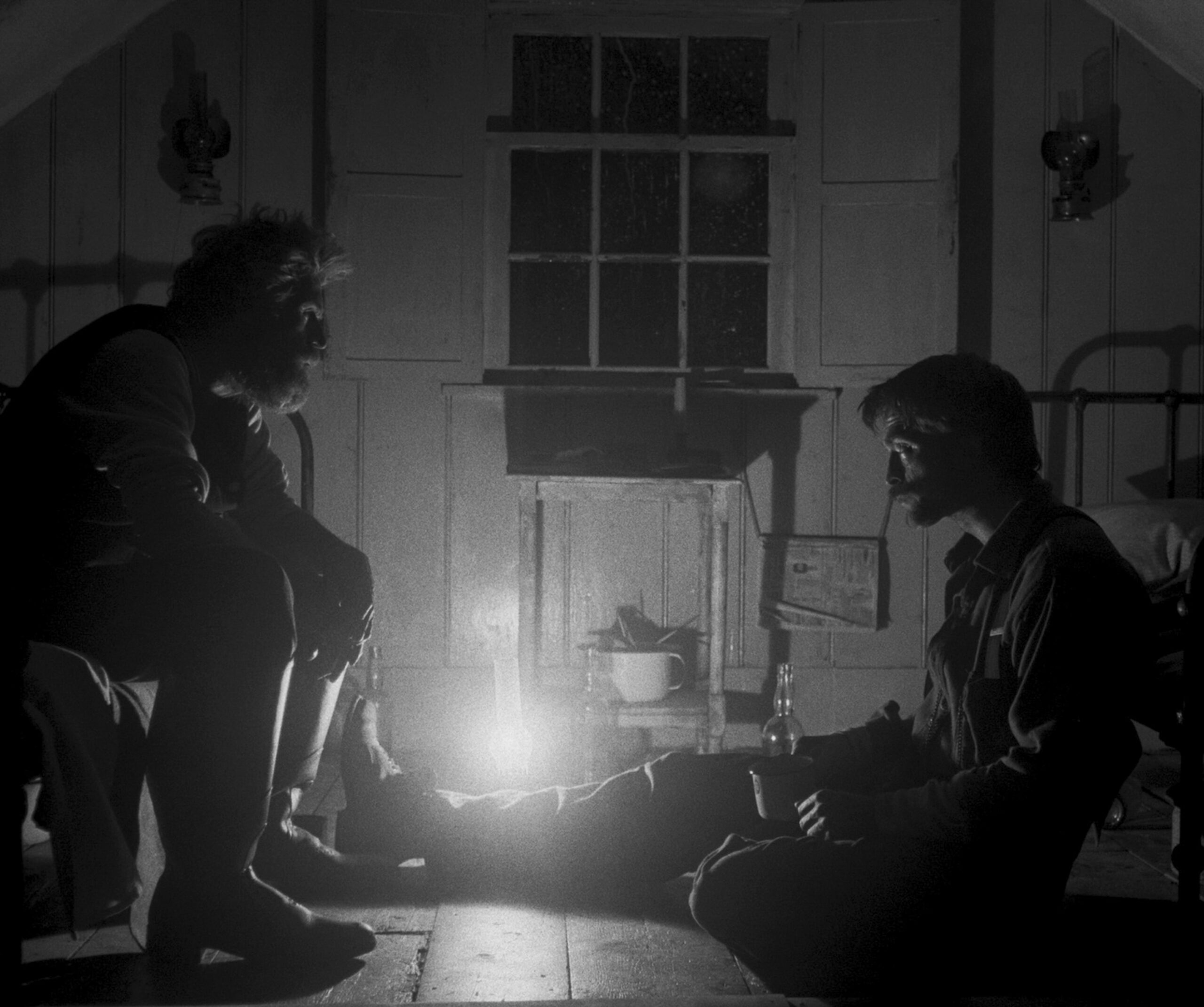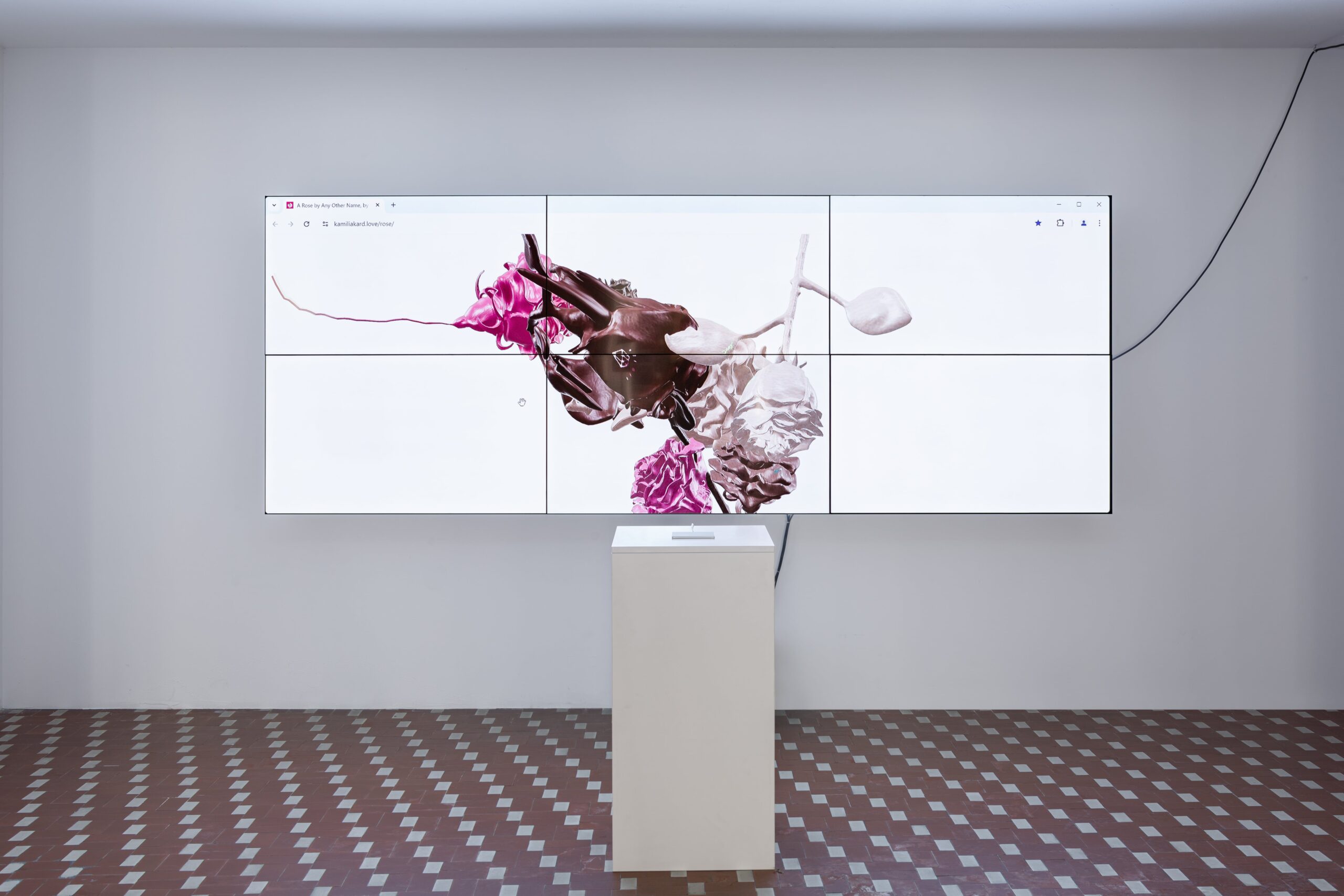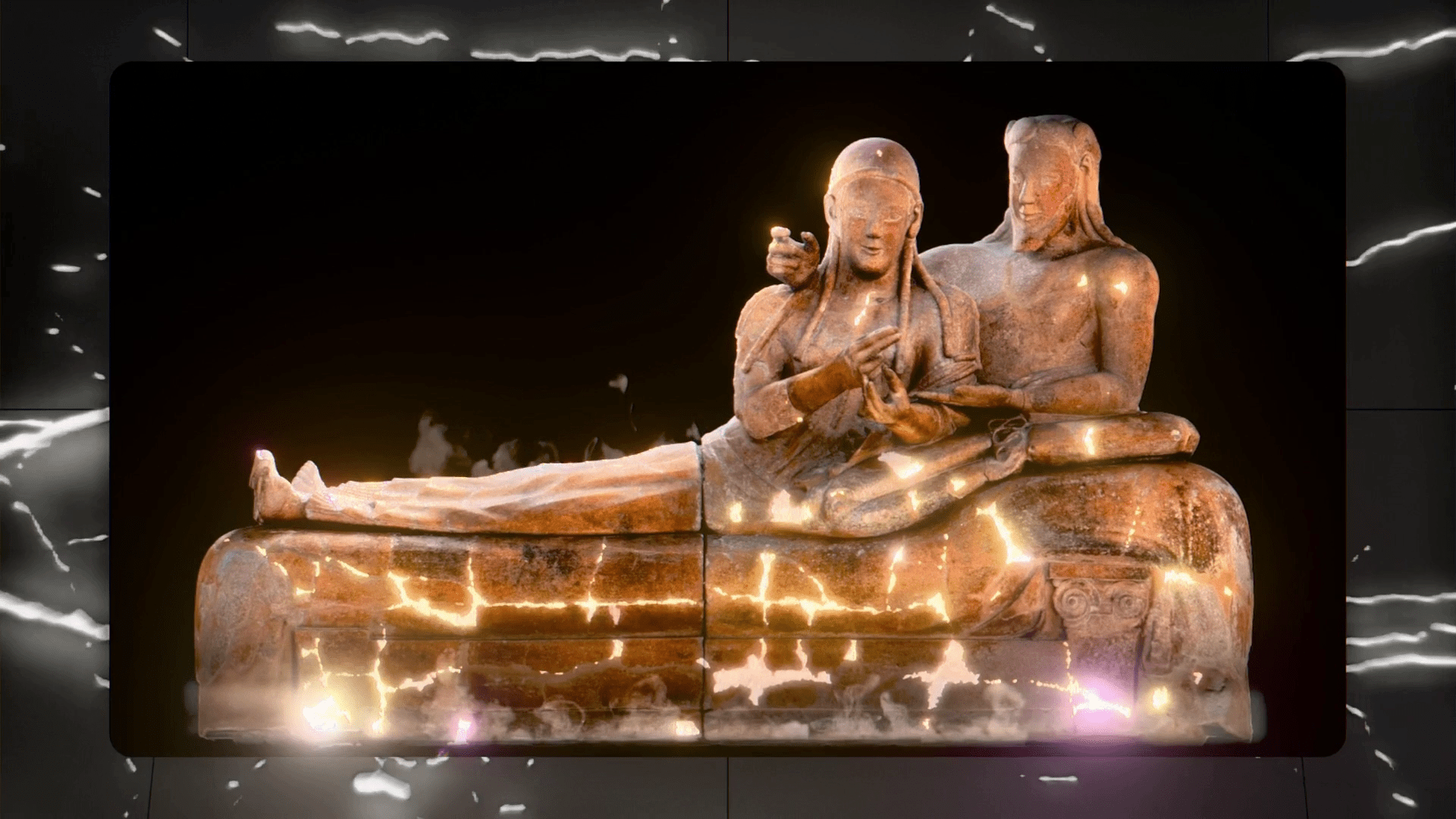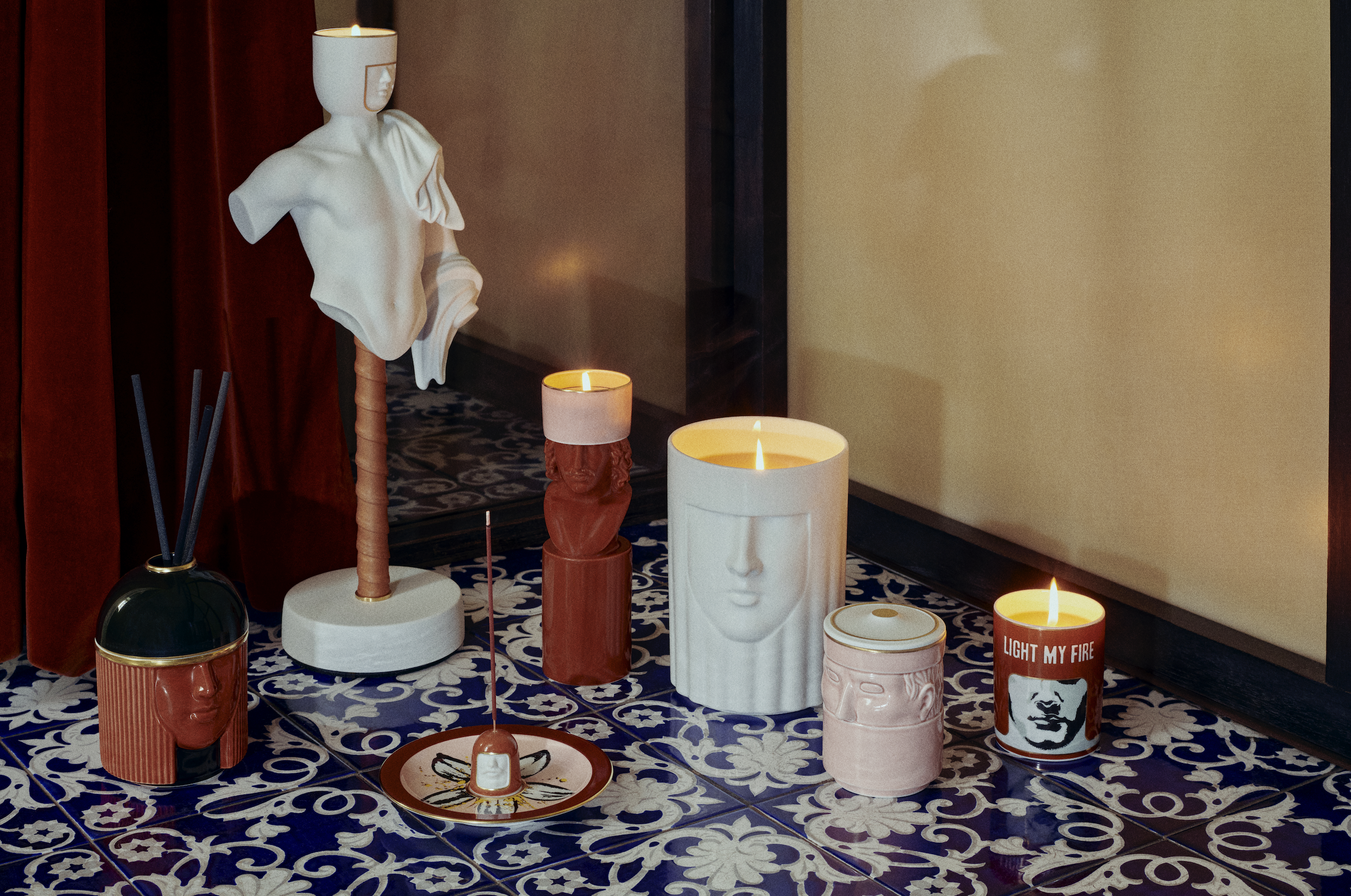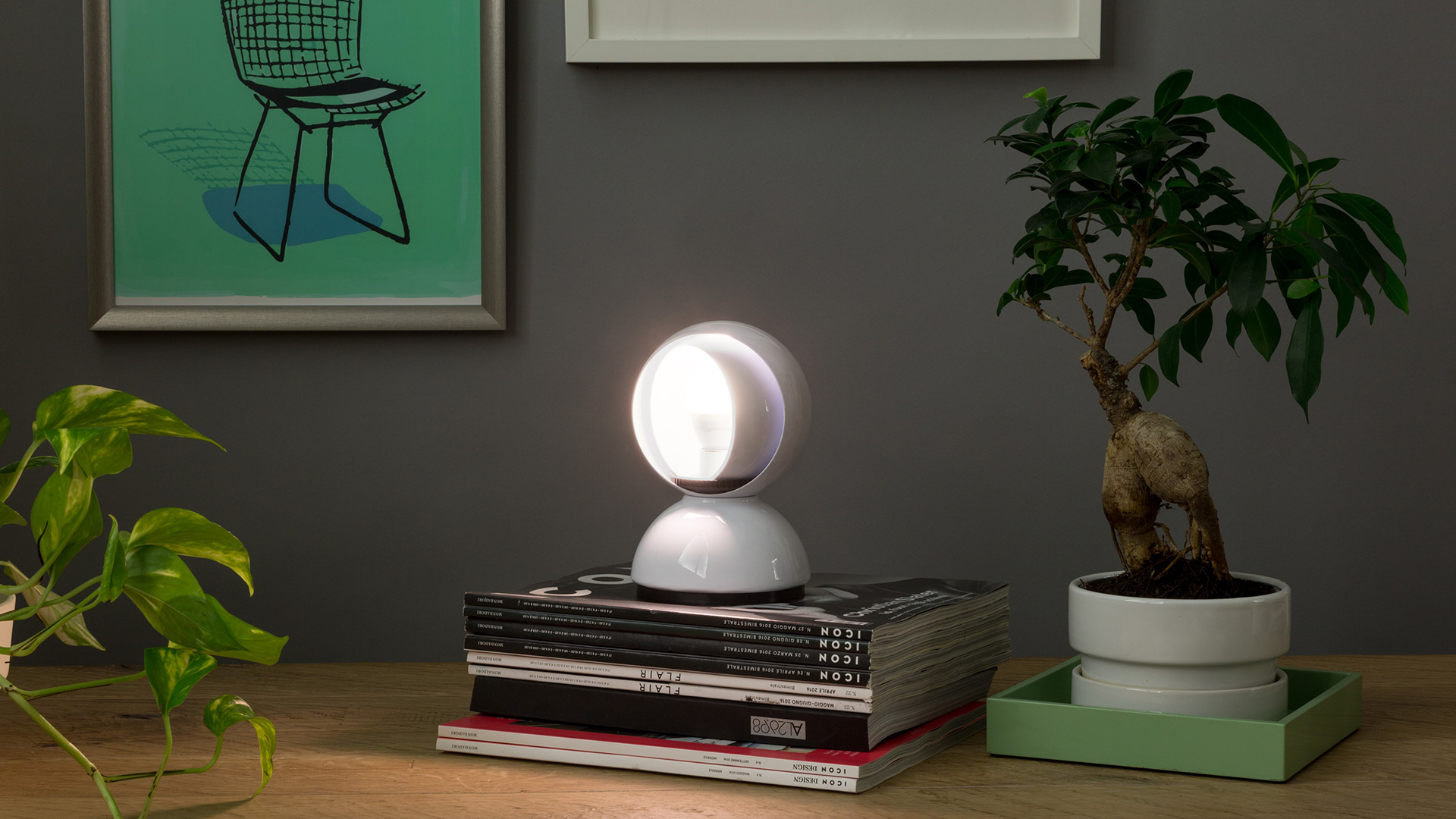Cover photo: Photo Courtesy of AMC
Shedding light on one of the most iconic series of the 2000s, Mad Men is like stepping into a world defined by Mid-Century aesthetics. A mix-and-match of furnishings, including various carefully chosen lamps, decorates the show’s settings—from sleek offices to stylish lofts, penthouses, and country homes—creating a rich visual tapestry that captures the spirit of the 1960s. These famous lamps aren’t just decorative—they help evoke the glossy nostalgia of 1960s New York.
As Claudette Didul, the show’s set decorator, told the Associated Press, the production team actively sought out vintage lampshades, scouring antique stores and flea markets across Los Angeles. «The silk on those shades is simply exquisite, and the light it emits is truly unique», she explained.
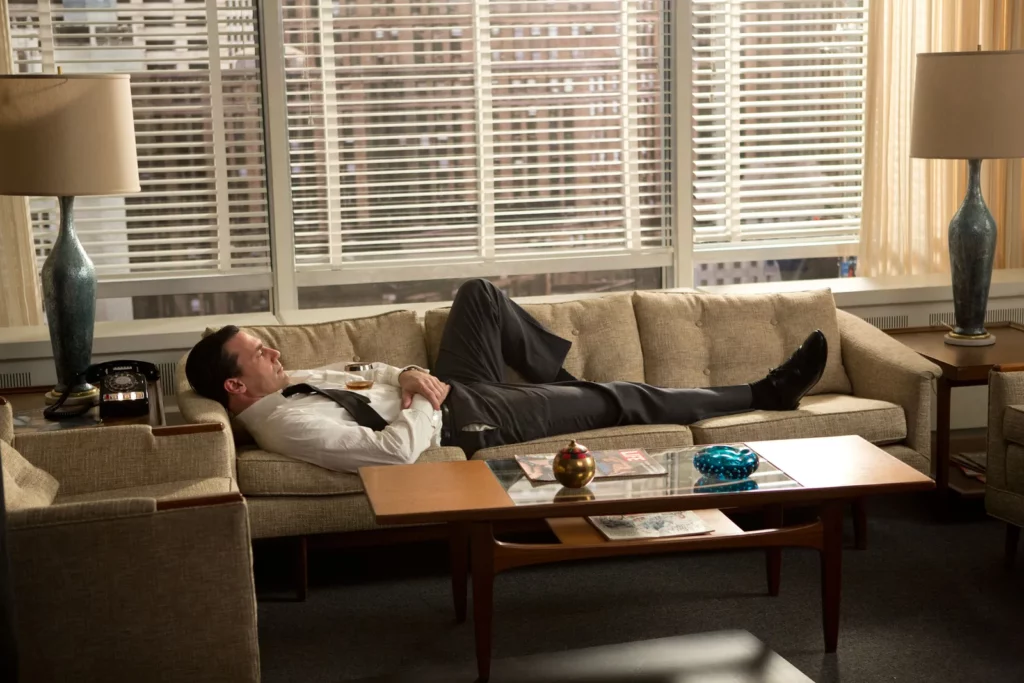
The cinematography plays a crucial role in recreating the past. In Mad Men, light is sculpted with great precision: overhead, from behind, or from the side, creating a visual tableau where every lamp aligns perfectly with the scene’s composition.
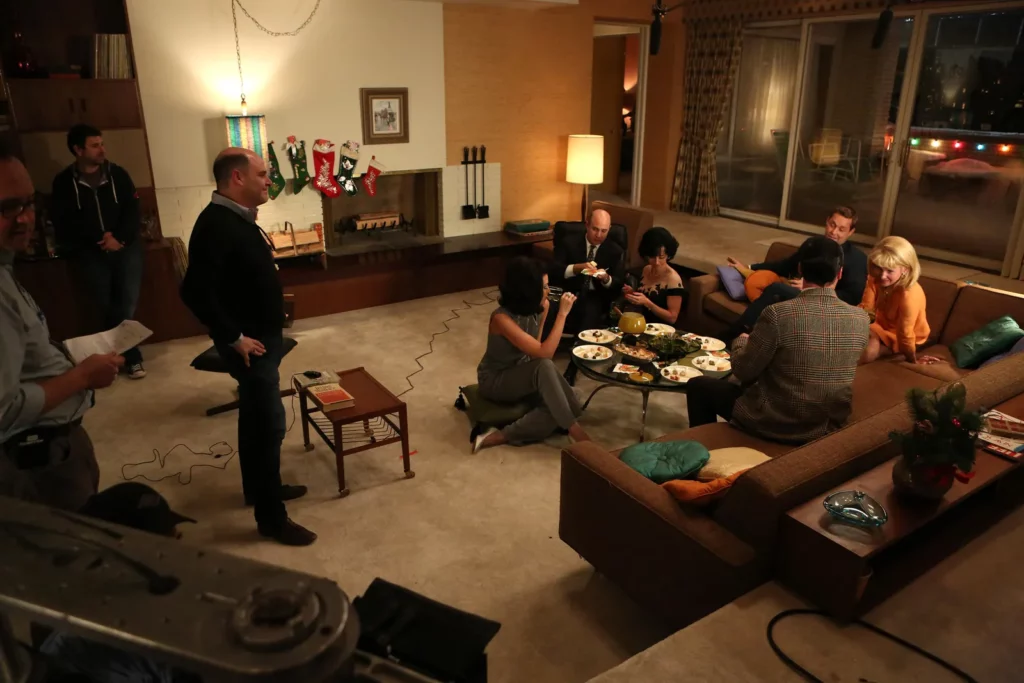
Christopher Manley, the show’s cinematographer, embraced an auteur noir approach, with one notable twist: an elegant, clear light consistently illuminating Don Draper, the series’ antihero ad man. His scenes often feature carefully curated lamps, adding depth to the interplay of light and shadow. But which lamps stand out the most? Let’s map the most unforgettable ones.
The “Mushroom Lamp”: Artemide’s Nesso in Roger Sterling’s Office
Roger Sterling, co-founder of Sterling Cooper, embodies 1960s New York’s glamorous yet morally decaying advertising world. Sharp-witted, alcohol-obsessed, and a lover of women and cigarettes, his office is graced by a Mushroom Lamp, the iconic Nesso by Artemide.
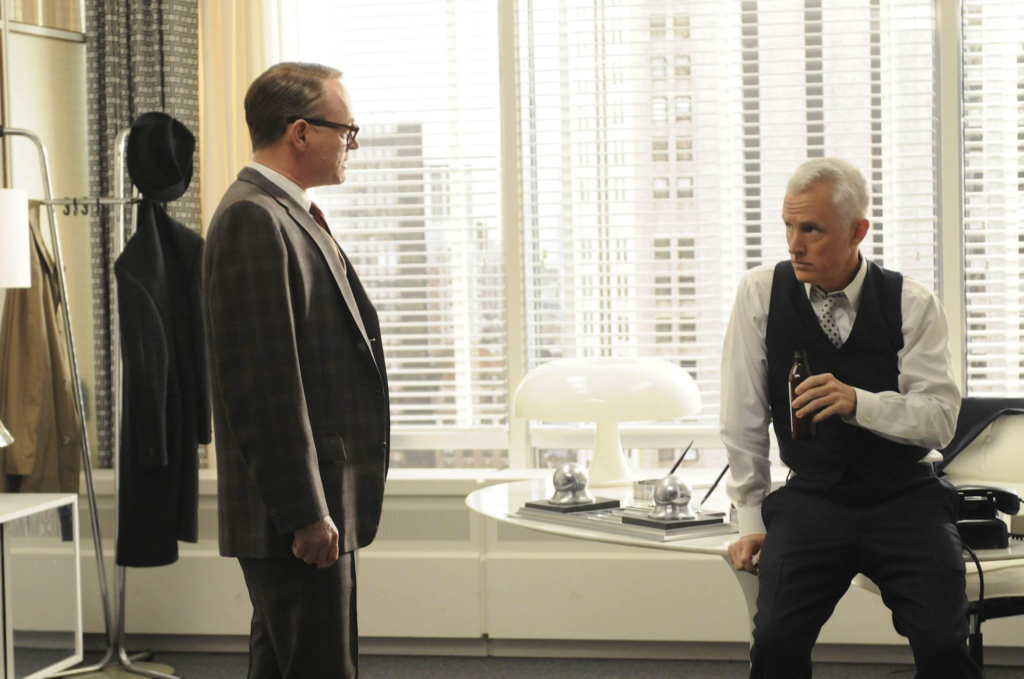
Designed in 1965 by Giancarlo Mattioli, Nesso is a hallmark of Italian design. Its quirky mushroom shape, crafted from injection-moulded ABS resin, comes in vibrant orange or soft white—Sterling’s choice. This futuristic design infuses his workspace with a trendy, avant-garde vibe, reflecting his refusal to compromise on style, even as his personal life crumbles.
The “Gräshoppa Floor Lamp” by Greta M. Grossman at Betty Draper’s Home
Designed by Greta M. Grossman in 1947, the Gräshoppa Floor Lamp stands out with its unique backward-leaning base. It conveys a sense of lightness and motion, almost as if the lamp is alive. The adjustable lampshade allows the light to be directed exactly where it is needed, echoing the dynamic essence of Mad Men, a show oscillating between history and cultural progress.
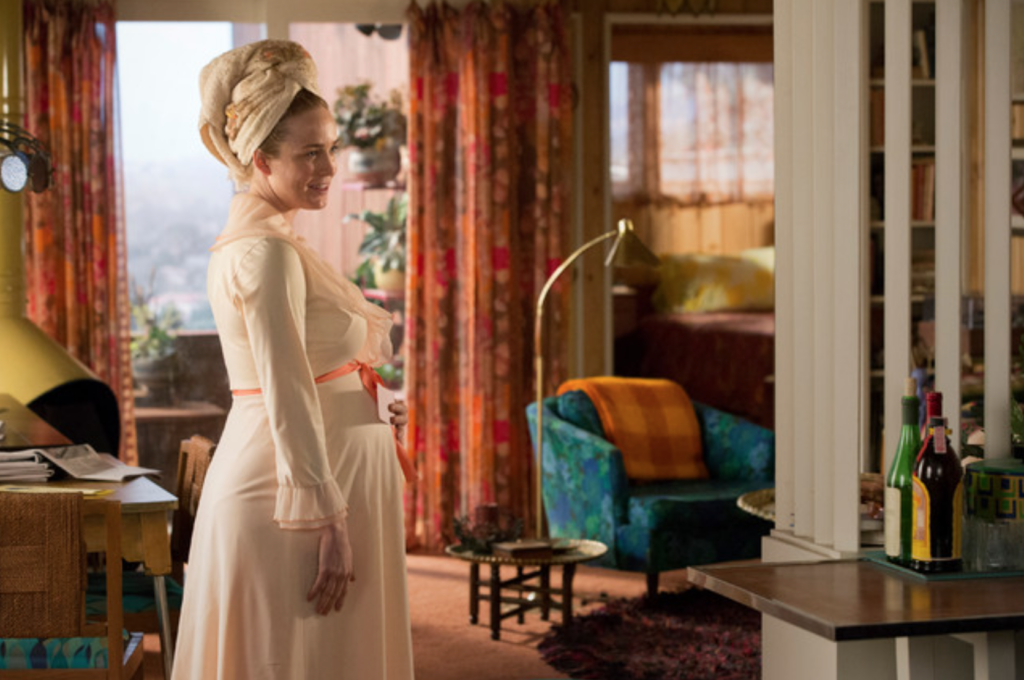
These lamps—or similar models—appear throughout the series in offices, apartments, and ateliers, often in neutral tones like black, white, or brass. Betty Draper’s home showcases this design between a mix of classic motifs, acidic 1970s hues, and eclectic décor.
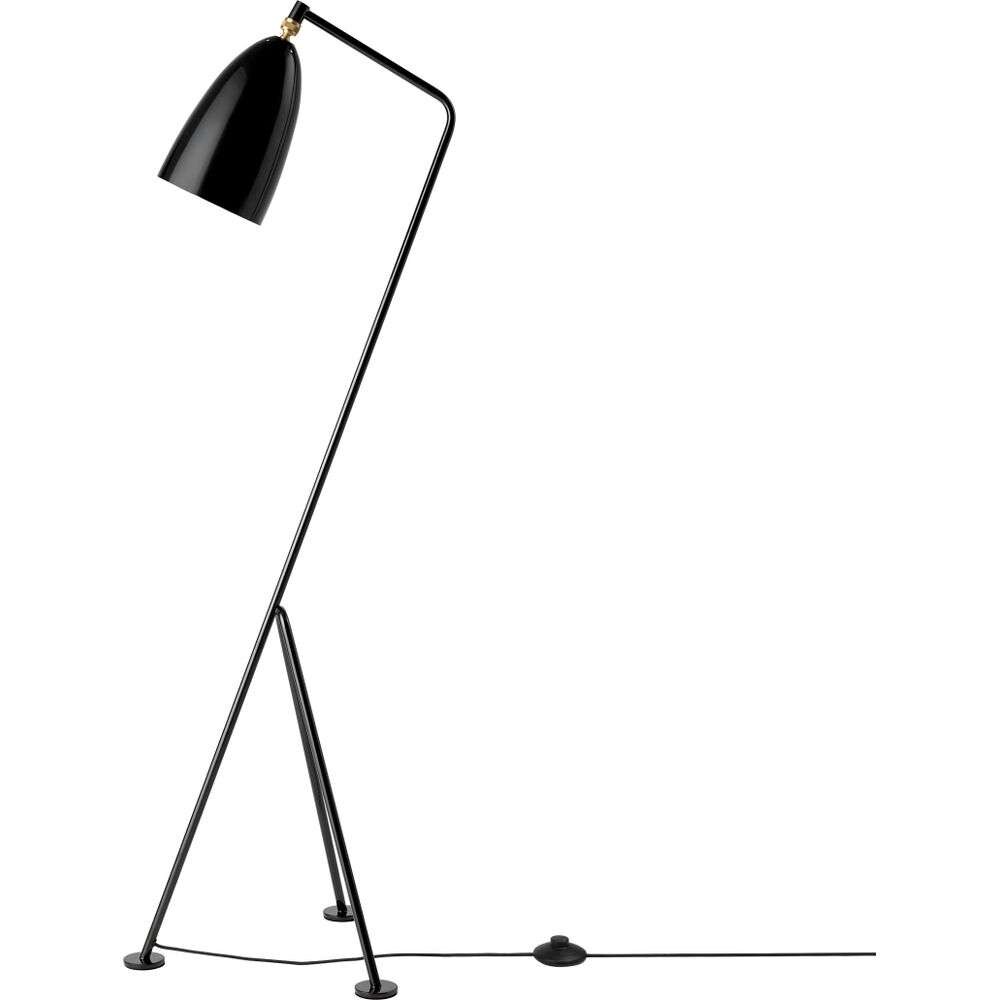
The Swag Lamps in Don and Megan Draper’s Apartment
Fans on Reddit have become obsessed with the “Swag Lamps”—blue and turquoise pendants that hang in Don and Megan’s ultra-stylish loft. One of these lamps even makes a cameo during the iconic scene where Megan serenades Don with Zou Bisou Bisou at a party, leaving him visibly uncomfortable.
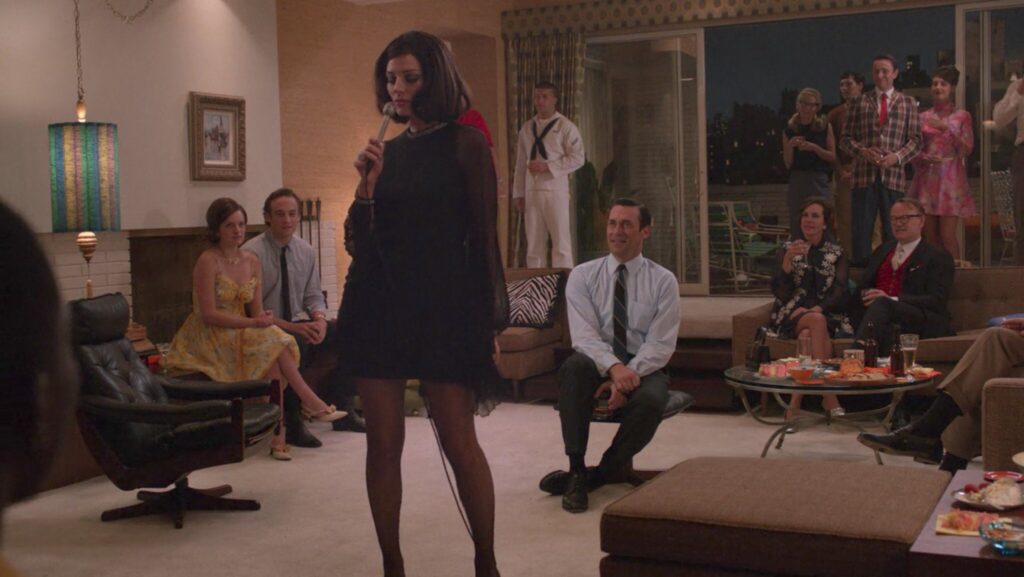
These unbranded lamps have inspired a scavenger hunt among fans. Some claim to have found similar models in estate sales or vintage boutiques, while others spot look-alikes on eBay, priced around $240.
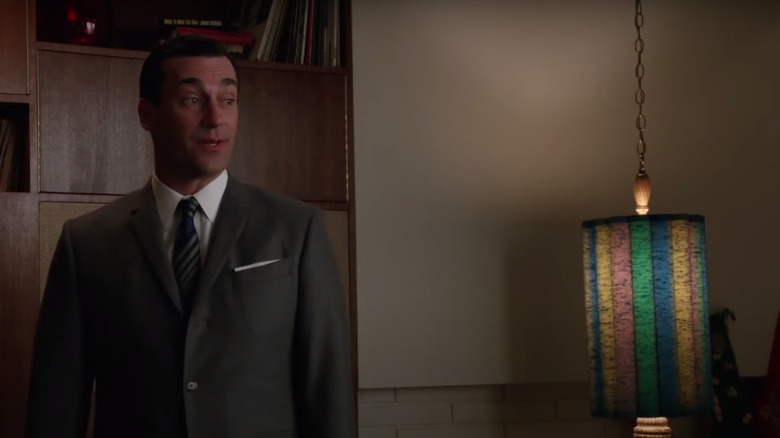
The Louis Christiaan Kalff Table Lamp at Sterling Cooper Offices
Seen in Don Draper’s and Joan Holloway’s offices, the Louis Christiaan Kalff lamp is a beacon of mid-century industrial design. Created in the 1950s by the Dutch designer, its aluminium and brass construction reflects the polished world of advertising, where appearances often trump reality.
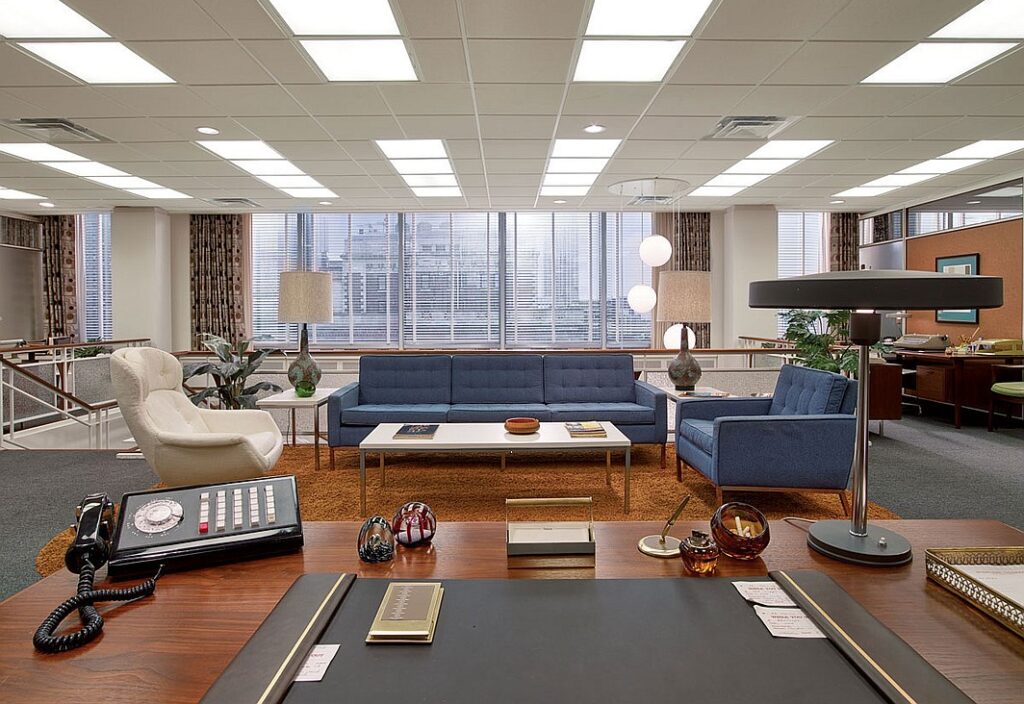
This lamp symbolizes the brilliance of New York’s creative elite—copywriters and art directors who, amid clouds of cigarette smoke and endless martinis, dream up brand narratives that inspire desire, envy, and ambition.
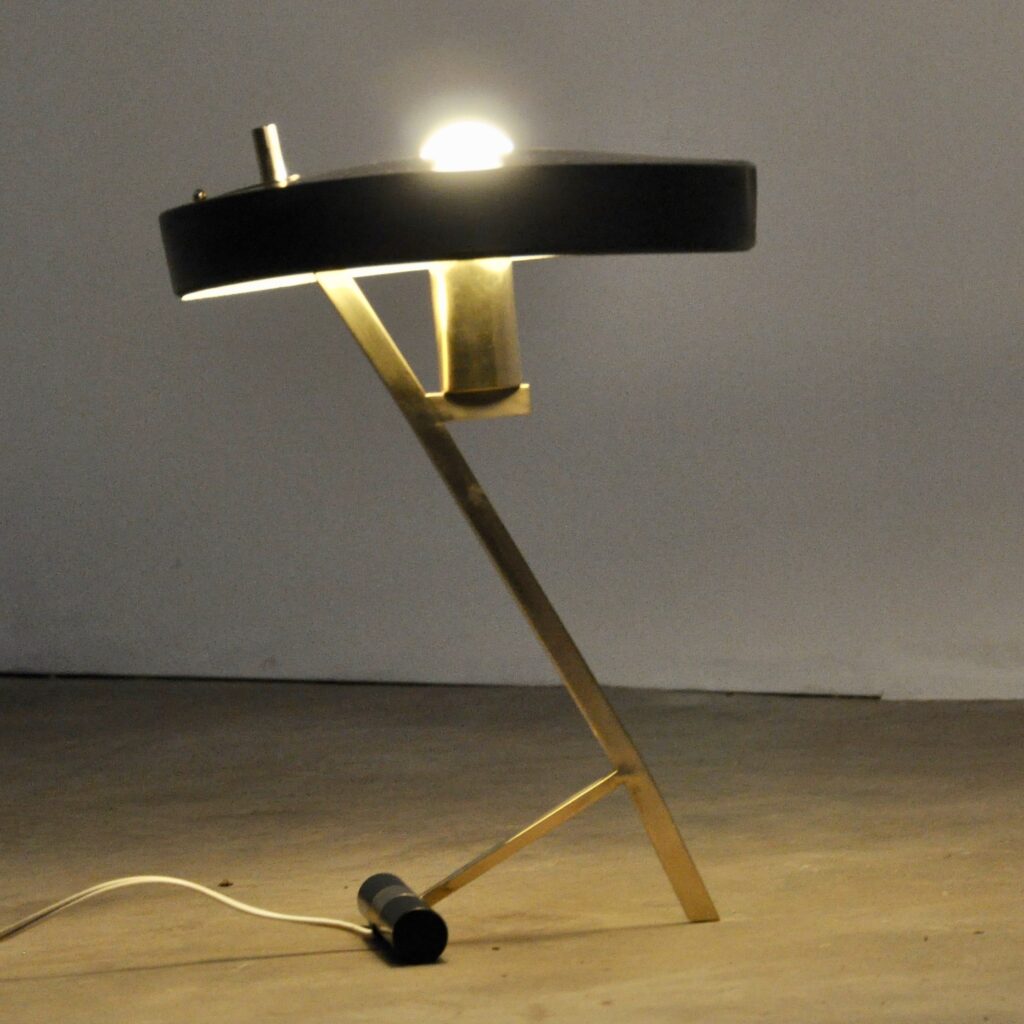
Mid-Century Lampshades in Offices and Apartments
The quintessential Mid-Century Lamp appears frequently in Mad Men, casting warm, orange-hued light. These shades embody the series’ carefully calibrated lighting design, blending soft illumination with the low-profile aesthetic of mid-century interiors.
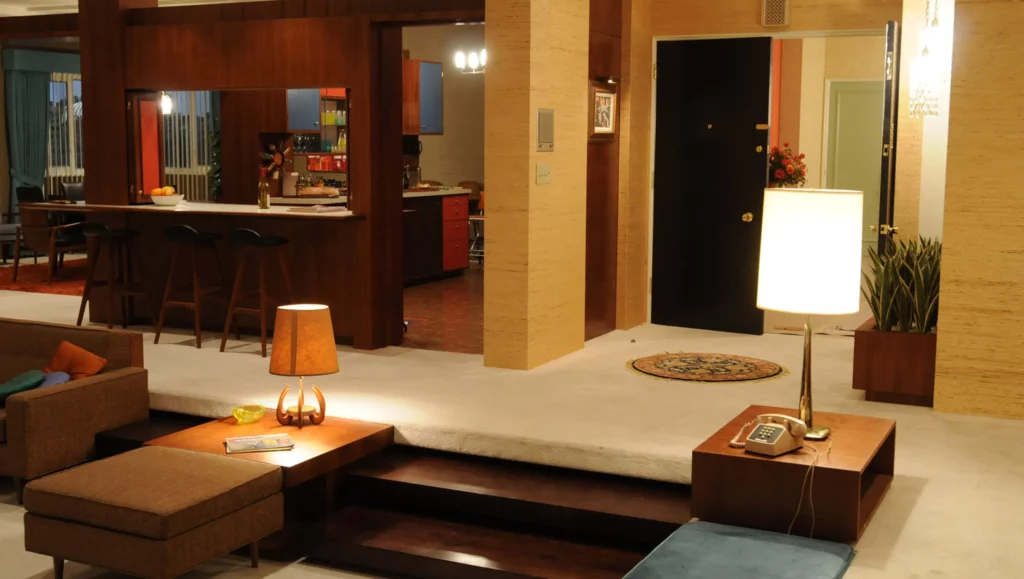
Today, similar vintage models can be found in high-end boutiques, flea markets, or even auctions. Urban Americana, an antique collective based in Long Beach’s Zaferia Design District, houses a vast collection of vintage treasures, including lamps reminiscent of those seen in the show.
